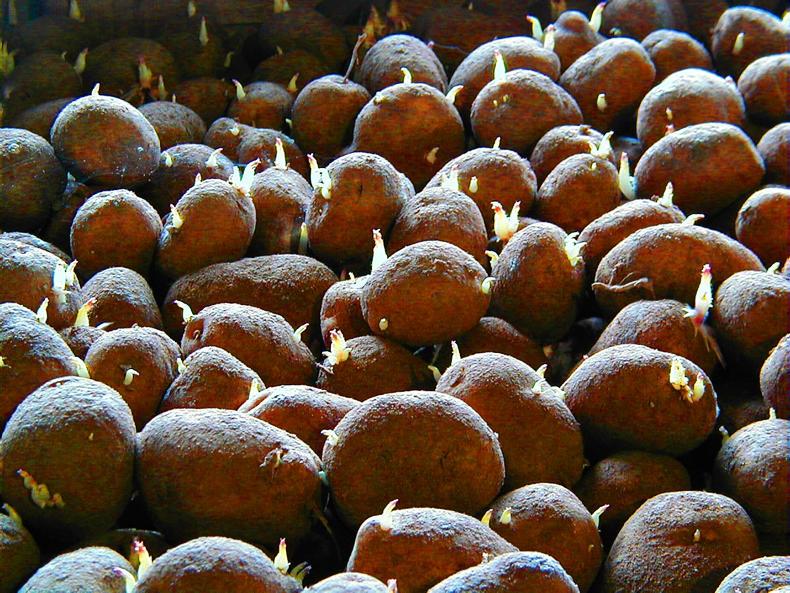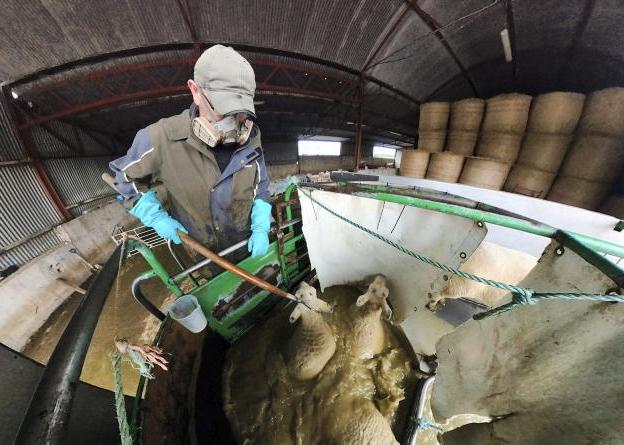A number of fungi and bacteria now have the potential to mutate their genes – making them more harmful to humans and plants, according to a new study.
Scientists lead by Rothamsted Research carried out studies, including one which the fungus responsible for the potato famine Ireland from 1845-49.
The research showed that a single mutation in the genes of microbes and pathogens can create highly infectious strains of diseases, including microbes responsible for human diseases such as TB and salmonella.
“[These mutations] could be due to climate change or agricultural practices,” Dr Kim Hammond-Kosack told the Irish Farmers Journal.
Database
Dr Hammond-Kosack oversees the world’s only specialist database on the disease-causing genes of microbes.
“The identified set of genes should be on a watch list. They could be potentially detrimental to crop or human health,” she says.
Microbial infections are of ever growing concern to human, animal and plant welfare
She explained that a pathogen has a much smaller genome that is favourable to mutation.
When a mutation occurred in tests – for example in the case of the famine fungus, Phytophthora infestans – it stopped the plant being able to defend itself properly.
“In addition, we have the emergence of many new disease causing organisms, we have diseases jumping species barriers into new hosts, and we have a growing resistance to antibiotics and pesticides – coupled with a rise in legislation banning or restricting many existing chemicals we use for control – all of which means microbial infections are of ever growing concern to human, animal and plant welfare,” Dr Hammond-Kosack said.
Read more
Keeping children safe around the farm
Mart prices: bullocks up €30 to €40 per head in Thurles
A number of fungi and bacteria now have the potential to mutate their genes – making them more harmful to humans and plants, according to a new study.
Scientists lead by Rothamsted Research carried out studies, including one which the fungus responsible for the potato famine Ireland from 1845-49.
The research showed that a single mutation in the genes of microbes and pathogens can create highly infectious strains of diseases, including microbes responsible for human diseases such as TB and salmonella.
“[These mutations] could be due to climate change or agricultural practices,” Dr Kim Hammond-Kosack told the Irish Farmers Journal.
Database
Dr Hammond-Kosack oversees the world’s only specialist database on the disease-causing genes of microbes.
“The identified set of genes should be on a watch list. They could be potentially detrimental to crop or human health,” she says.
Microbial infections are of ever growing concern to human, animal and plant welfare
She explained that a pathogen has a much smaller genome that is favourable to mutation.
When a mutation occurred in tests – for example in the case of the famine fungus, Phytophthora infestans – it stopped the plant being able to defend itself properly.
“In addition, we have the emergence of many new disease causing organisms, we have diseases jumping species barriers into new hosts, and we have a growing resistance to antibiotics and pesticides – coupled with a rise in legislation banning or restricting many existing chemicals we use for control – all of which means microbial infections are of ever growing concern to human, animal and plant welfare,” Dr Hammond-Kosack said.
Read more
Keeping children safe around the farm
Mart prices: bullocks up €30 to €40 per head in Thurles









SHARING OPTIONS